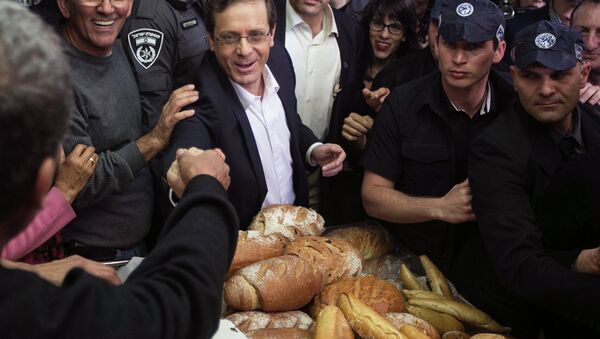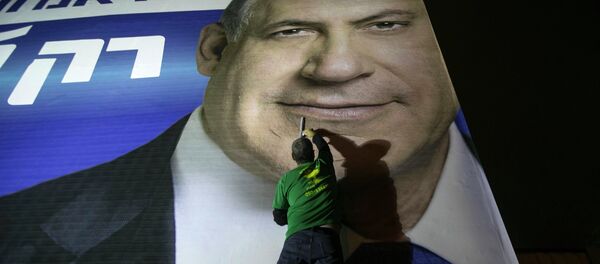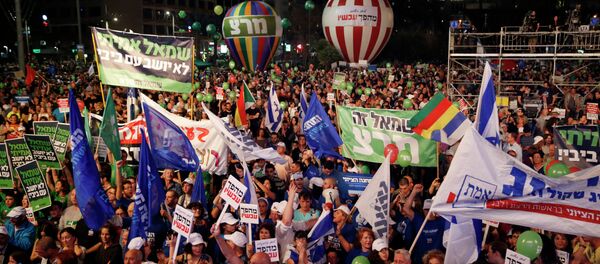An early general election in Israel is scheduled for March 17. The two main rivals are the largest parties – Likud, headed by current Prime Minister Benjamin Netanyahu, and the opposition Zionist Union, led by Isaac Herzog.
"The main intrigue of the elections is revolving around smaller parties such as Yisrael Beitenu, led by Avigdor Liberman, ultra-right Yachad and Meretz that may not pass the threshold," a former head of Nativ, the Israeli government agency for promoting immigration from the former Soviet Union, Yakov Kedmi told Sputnik.
The latest poll, published by Haaretz on Thursday, indicates a growing lead for Labor party leader Isaac Herzog and centrist Tzipi Livni's Zionist Union over Netanyahu's party. The Zionist Union is polling 24 seats in the Knesset seat against 21 for Likud.
Kedmi underlined that Yisrael Beytenu's disadvantage lies in fact that its voters are among the 40 plus age category. "The party would need to organize them and may be even transport them to the voting centers," he said stressing that "it will not be an easy task" for Yisrael Beytenu as 20 senior members of the party are under investigation.
In December, police announced a number of arrests of senior Yisrael Beytenu party functionaries, for their alleged involvement in a major corruption scheme including the taking and giving of bribes, cronyism and fraud.
Yevgeny Satanovsky, the president of Institute for Middle East Studies, in turn, believes that the main peculiarity of the this elections lies in fact that "the right-wing parties are waging war between an old elite, led by "old Likud," and a new elite, represented by the parties of Avigdor Liberman and Naftali Bennett."
The expert stressed that unprecedented campaigns against newly emerged leaders are proving this fact. "If smaller parties unite, they, potentially, will be able to create their own coalition list in which one of them could become the next prime minister," Satanovsky asserted.
However, according to the most recent polls, Netanyahu still has a good chance of forming Israel's next government as the ruling party has more natural political partners in the parliament than its main challenger Isaac Herzog. The center-left Zionist Union would need a big lead in order to form a like-minded coalition.




